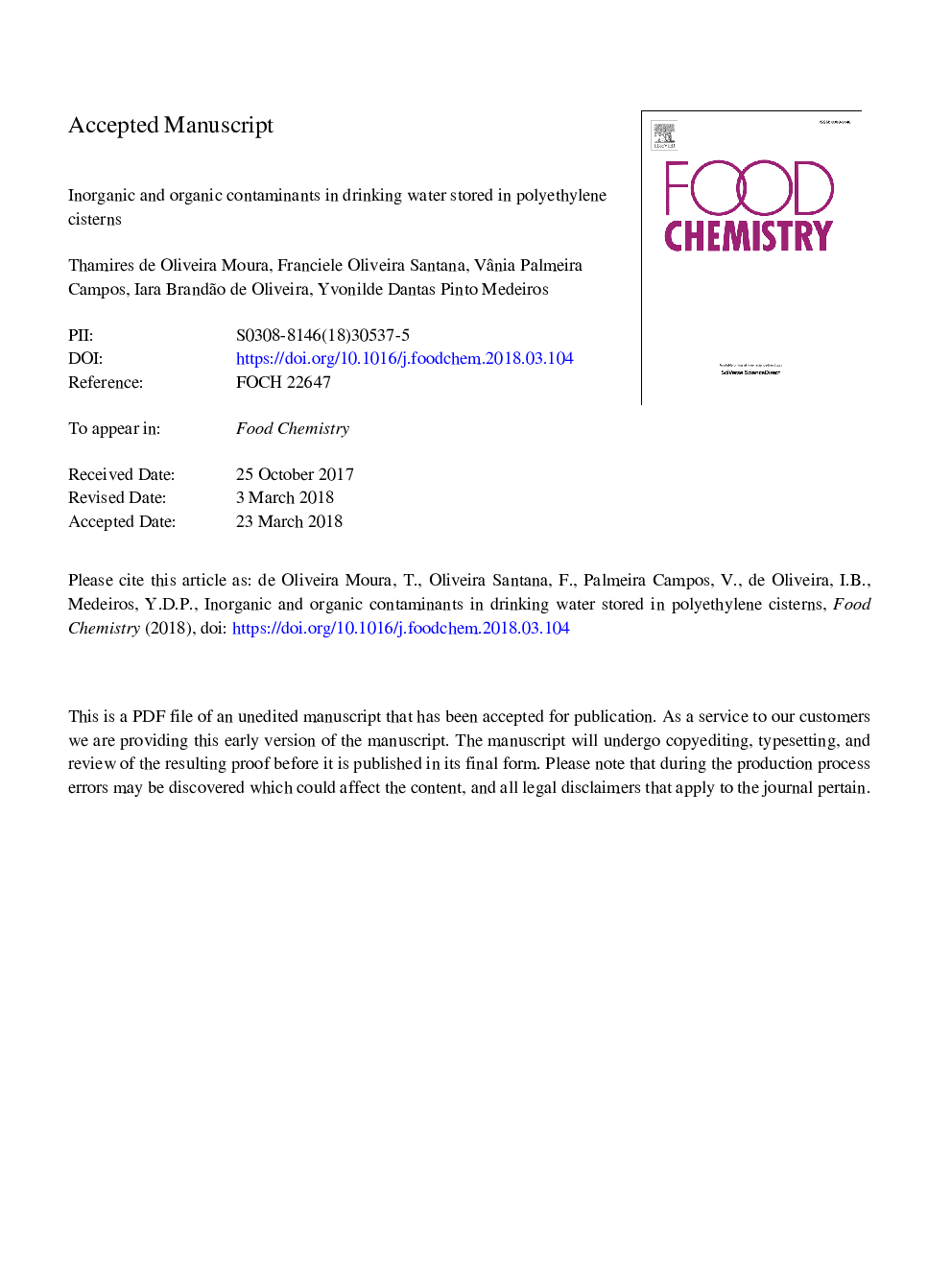| Article ID | Journal | Published Year | Pages | File Type |
|---|---|---|---|---|
| 11011719 | Food Chemistry | 2019 | 22 Pages |
Abstract
This work evaluated the presence of contaminants in stored rainwater in 36 polyethylene tanks installed in two rural communities of the semiarid of Bahia, Brazil. Carbonyl compounds were analyzed by High Performance Liquid Chromatography (HPLC-UV), BTEX (Benzene, Toluene, Ethylbenzene and Xylenes) by gas chromatoghaphy (GC-FID), and trace elements by inductively coupled plasma optical emission spectrometry (ICP-OES). Seven carbonyl compounds were quantified including acrolein (<3-115â¯Âµgâ¯Lâ1), which is considered a potent mutagenic agent, above the potability limit in 75% of the cases. Trace elements such as copper, zinc, barium, aluminum and lead, more frequently found, were also quantified, and lead (<0,56-99â¯Âµgâ¯Lâ1) was above the tolerable limit for drinking water of 10â¯Î¼gâ¯Lâ1 in 73% of the cases. The results show that the stored water in polyethylene cisterns in the Brazilian semiarid region does not present satisfactory conditions for human consumption.
Related Topics
Physical Sciences and Engineering
Chemistry
Analytical Chemistry
Authors
Thamires de Oliveira Moura, Franciele Oliveira Santana, Vânia Palmeira Campos, Iara Brandão de Oliveira, Yvonilde Dantas Pinto Medeiros,
